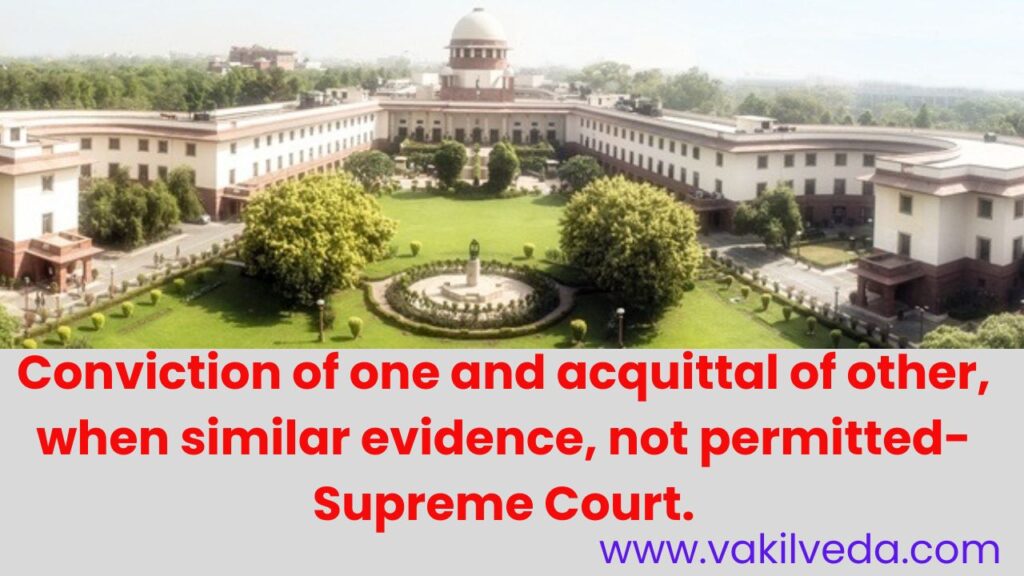
The division bench of the Supreme Court comprising Hon’ble A.S. Oka J. and Sanjay Karol J. acquitted a convicted person, the appellant by setting aside the impugned judgment of the Gujrat High Court. Further, three other convicts were also acquitted by the Supreme Court exercising its power suo moto under Article 136 of the Constitution of India extended the benefit of parity to these three convicts who didn’t challenge the judgment of the High Court.
In the case total of 13 accused were prosecuted, out of which 7 were convicted including the present appellant. They were convicted under Sections 396, 395, 307, 435, 149 and 201 of the Indian Penal Code, 1860. The Supreme Court opined that when there is similar or identical evidence of eyewitnesses against two accused by ascribing them the same or similar role, the court cannot convict one accused and acquit the other. In such type of cases, the principle of parity will be applicable otherwise it would be a violation of the Fundamental Right contained in Article 21 of the Constitution of India. If the court makes a distinction between the two accused in such type of cases then it would amount to discrimination.
(Javed Shaukat Ali Qureshi v. State of Gujrat, 2023 SCC OnLine SC 1155)
Source- SCC



What words… super, a brilliant idea
Pingback: The Truck Drivers Strike and Their Victory- 2024 - www.vakilveda.com
Pingback: Hon'ble J. Arun Bhansali to be the Chief Justice of Allahabad HC - www.vakilveda.com